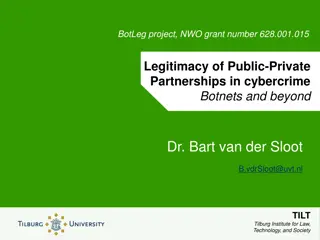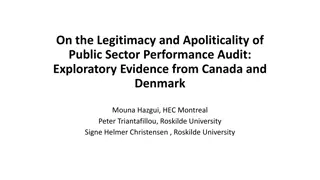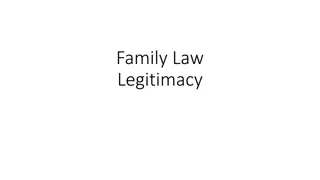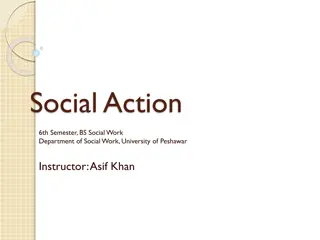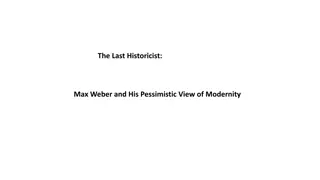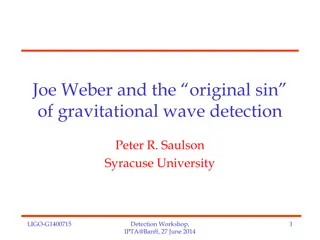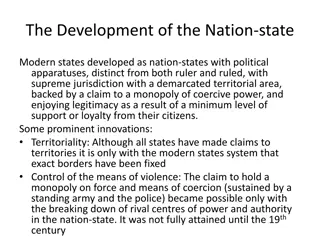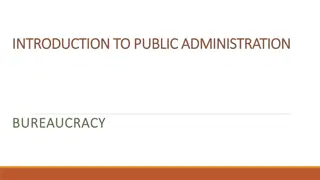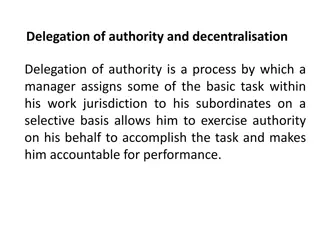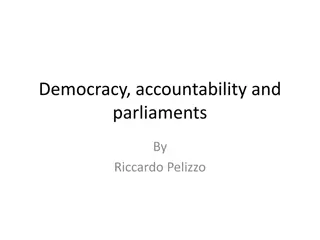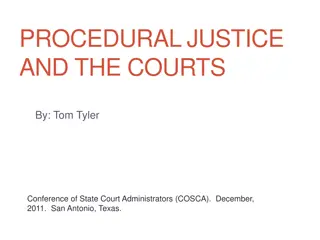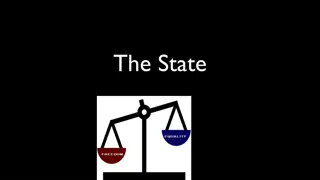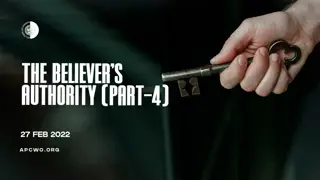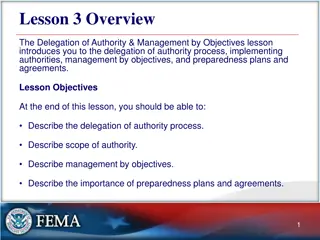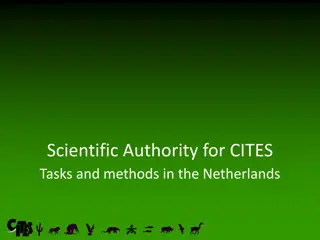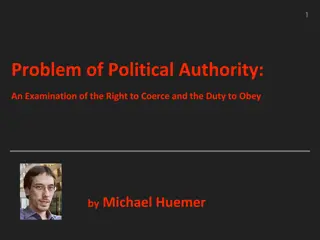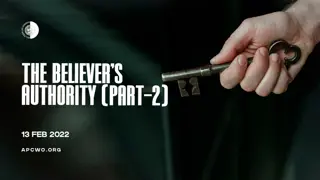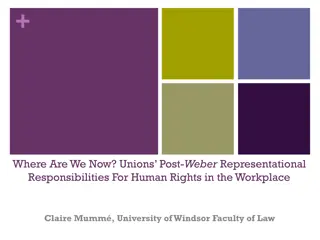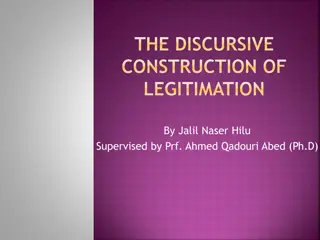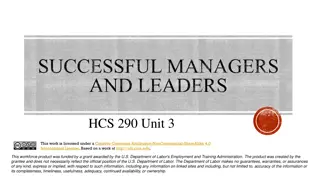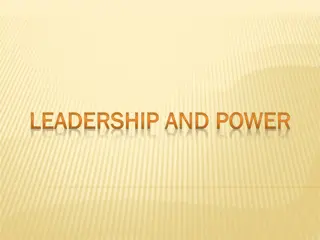Understanding Power and Authority: Exploring Legitimacy Through Works of Lukes and Weber
Diving into the concepts of power and authority, this discussion focuses on the crucial role of legitimacy in distinguishing between the two. Drawing insights from the works of Lukes and Weber, the discourse delves into the dimensions of decision-making, non-decision-making, and shaping desires to illuminate the complexities of governance and control in society.
Download Presentation

Please find below an Image/Link to download the presentation.
The content on the website is provided AS IS for your information and personal use only. It may not be sold, licensed, or shared on other websites without obtaining consent from the author. Download presentation by click this link. If you encounter any issues during the download, it is possible that the publisher has removed the file from their server.
E N D
Presentation Transcript
HomeButton.png Higher politics 20 mark essays
HomeButton.png The question- 20 marks Legitimacy is crucial to the distinction between Power and Authority. Discuss, using the works of Lukes and Weber to illustrate your answer.
HomeButton.png Mark allocation 8 marks for Knowledge and understanding 6 marks for Analysis 4 marks for Conclusions (addressing and evaluating the issue in the questions) 2 marks for Structure
HomeButton.png Success criteria Content & Descriptions Explanations Exemplification Analysis Structure Conclusions / evaluation
HomeButton.png Content & descriptions Do you have enough points? Is there anything missing? At least 3 though possibly 4 aspects of the question How detailed were your descriptions Did you cover Power, Authority and legitimacy
HomeButton.png Development of the points Did you explain things How much detail did you use in your explanations Did you use examples to illustrate the points
HomeButton.png KU 1 mark- one aspect with some description 2 marks- one aspect with detailed description 3 marks one aspect is developed with some explanation and/ or exemplification 4 marks one aspect is developed with detailed explanation and/or exemplification
HomeButton.png The first face of power is decision-making. This is the power that people who make decisions have, eg MSPs. The second face of power is what Lukes called non-decision-making . This is when the agenda is being set. The third face of power is known as shaping desires . This is when those in power manipulate the rest of society.
HomeButton.png The first face of power is decision-making. This is the power that people who make decisions have, eg MSPs. The second face of power is what Lukes called non-decision-making . This is when the agenda is being set and a decision is taken off the table. The third face of power is known as shaping desires . This is when those in power manipulate the rest of society into believing they are acting in the public s best interests.
HomeButton.png The first face of power is decision-making. This is the power that people who make decisions have, eg MSPs. This is the open face because it can be seen when power is being exercised. The second face of power is what Lukes called non-decision-making . This is when the agenda is being set and a decision is taken off the table. The third face of power is known as shaping desires . This is when those in power manipulate the rest of society into believing they are acting in the public s best interests. Lukes argues that this is the most insidious face of power as the powerless begin to accept their position and are not aware of their best interests.
HomeButton.png The first face of power is decision-making. This is the power that people who make decisions have, eg MSPs. This is the open face because it can be seen when power is being exercised, eg when a decision is being made. There are many examples of this, eg the smoking ban in 2006 which was passed by MSPs. The second face of power is what Lukes called non-decision-making . This is when the agenda is being set and a decision is taken off the table, eg the Conservative governments from 1979-97 did not allow the Scottish people a chance to vote on devolution as the Conservatives were against this. This usually happens behind closed doors and so is called the secret face. The third face of power is known as shaping desires . This is when those in power manipulate the rest of society into believing they are acting in the public s best interests, eg when Tony Blair was in power he claimed that there was strong evidence that Iraq had weapons of mass destruction (WMD). However, once the invasion of Iraq had taken place it was revealed that this was not the case and the evidence had been exaggerated by the PM in order to manipulate public opinion. Another example is the position of women. Feminists argue that men maintain power over women by persuading them that being a housewife or mother are the most desirable roles for women and so women remain in a position where they can be exploited by, and for the benefit of, men. Lukes argues that this is the most insidious face of power as the powerless begin to accept their position and are not aware of their best interests.
HomeButton.png The first face of power is decision-making. This is the power that people who make decisions have, eg MSPs. This is the open face because it can be seen when power is being exercised, eg when a decision is being made. There are many examples of this, eg the smoking ban in 2006 which was passed by MSPs. The second face of power is what Lukes called non-decision-making . This is when the agenda is being set and a decision is taken off the table, eg the Conservative governments from 1979-97 did not allow the Scottish people a chance to vote on devolution as the Conservatives were against this. This usually happens behind closed doors and so is called the secret face. The third face of power is known as shaping desires . This is when those in power manipulate the rest of society into believing they are acting in the public s best interests, eg when Tony Blair was in power he claimed that there was strong evidence that Iraq had weapons of mass destruction (WMD). However, once the invasion of Iraq had taken place it was revealed that this was not the case and the evidence had been exaggerated by the PM in order to manipulate public opinion. Another example is the position of women. Feminists argue that men maintain power over women by persuading them that being a housewife or mother are the most desirable roles for women and so women remain in a position where they can be exploited by, and for the benefit of, men. Lukes argues that this is the most insidious face of power as the powerless begin to accept their position and are not aware of their best interests.
HomeButton.png Power/Authority and Legitimacy The first face of power is decision-making. This is the power that people who make decisions have, eg MSPs. This is the open face because it can be seen when power is being exercised, eg when a decision is being made. There are many examples of this, eg the smoking ban in 2006 which was passed by MSPs. The second face of power is what Lukes called non-decision-making . This is when the agenda is being set and a decision is taken off the table, eg the Conservative governments from 1979-97 did not allow the Scottish people a chance to vote on devolution as the Conservatives were against this. This usually happens behind closed doors and so is called the secret face. The third face of power is known as shaping desires . This is when those in power manipulate the rest of society into believing they are acting in the public s best interests, eg when Tony Blair was in power he claimed that there was strong evidence that Iraq had weapons of mass destruction (WMD). However, once the invasion of Iraq had taken place it was revealed that this was not the case and the evidence had been exaggerated by the PM in order to manipulate public opinion. Another example is the position of women. Feminists argue that men maintain power over women by persuading them that being a housewife or mother are the most desirable roles for women and so women remain in a position where they can be exploited by, and for the benefit of, men. Lukes argues that this is the most insidious face of power as the powerless begin to accept their position and are not aware of their best interests.
HomeButton.png Analysis ? More than purely descriptive Definitions: 1. The abstract separation of a whole into its constituent parts in order to study the part and their relations 2. An investigation of the component parts of a whole and their relations in making up the whole
HomeButton.png Analysis-What does this tell us about the issue or topic? Links between the components and the whole Links between different components Links between components and related concepts The relevant importance of different components Similarities and contradictions Possible consequences/ implications Consistency and inconsistencies Different views or interpretations
HomeButton.png Links between the components and the whole Ie by outlining how power/ authority and legitimacy all fit together
HomeButton.png Links between different components Ie by outlining the link between authority and legitimacy
HomeButton.png Links between components and related concepts For example by identifying the link between decision making and democracy
HomeButton.png The relevant importance of different components For example pointing out that legal-rational is the most common type of authority in the modern world
HomeButton.png Similarities and contradictions For example by identifying that both non decision making and shaping desires are seen as hidden faces of power exercised behind closed doors but decision making is quite different and is the open face and transparent
HomeButton.png Possible consequences/ implications For example by outlining the implications of charismatic authority (ie it disappears when the person dies for example) Or For example outlining the implications of a political system not having legitimacy (ie instability, conflict and violence such as Northern Ireland)
HomeButton.png Different views or interpretations For example how marxists would interpret elections as being there to manufacture legitimacy rather than actually influence the running of the country
HomeButton.png Analysis 1 mark for an analytical statement In Northern Ireland until recently a significant section of the population did not feel that the political system was legitimate and as a result the government, in the absence of having the authority to govern, had to resort to the use of troops and other forms of coercion to maintain its power 2 marks for an analytical statement with supporting evidence or justification In Northern Ireland until recently a significant section of the population did not feel that the political system was legitimate and as a result the government, in the absence of having the authority to govern, had to resort to the use of troops and other forms of coercion to maintain its power. This was because the nationalist community felt discriminated against by the unionist majority and so did not view the system as legitimate. This may explain why the main attempts recently to resolve the Troubles, such as the Good Friday Agreement, have tried to create a political system that is seen as legitimate by all sections of society by introducing a power-sharing system in Northern Ireland
HomeButton.png Conclusions Can be summative (at the end) or can be developed as a series of conclusions during the course of the answer. However- make an evaluation of the issue identified in the question at the end of your answer- For example present a well argued conclusion that legitimacy is crucial to the distinction between Power and Authority.
HomeButton.png In conclusion, legitimacy is the what transforms power into authority.
HomeButton.png In conclusion, legitimacy is crucial to understanding the distinction between power and authority. Power is the ability to rule and authority is the right to rule. Legitimacy is the difference between the two as it is what transforms power into authority. If someone in power has legitimacy then they are seen as having the authority to govern
HomeButton.png It is clear that legitimacy is crucial to the link between power and authority. For someone to have authority they must also possess legitimacy. For example, when Gordon Brown became PM he had all the formal powers of the prime minister but he did not have the same authority as other prime ministers as he had not been voted in by the people. He lacked the legitimacy, or the rightfulness to rule, as he did not have the consent of the people gained by being the winner of an election. As a result, critics claimed that he lacked authority people did not accept that he had the right to rule without the consent of the voters and he was frequently challenged to call an election to gain the legitimacy he lacked. If power is the ability to get other people to do what you want them to do, authority can been seen as having the right to do this. The key to the difference between this is what creates the sense of rightfulness ie legitimacy. In political systems where the rulers lack legitimacy (eg by holding elections), they are not seen as having the right to rule and have to rely on coercion to maintain their power. This could be exercised through threats or sanctions such as military force, or through manipulation such as control of the media.
HomeButton.png Structure Beginning- define the issue, with any added detail Main part- in paragraphs in a clear order (that doesn t jump about) End address the issue in the question


